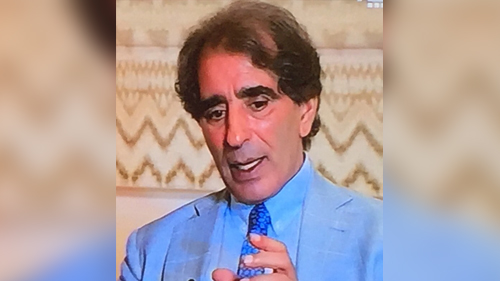Contact Center
.
28 November 2017
Dr. Taher Labib Honored for Valuable Contributions By Ibn Khladoun Award Jury


Announcement of the results of the "Ibn Khaldoun" Award for Development Studies in Humanities and Social Studies in the Mediterranean 2017” came on 10 November 2017, honouring the talented social science intellectual, Dr. Taher Labib, from Tunisia. The ceremony was held at Madrasa Al Khaldounia, attached to the National Library of Tunisia.
Dr. Labib is a former professor of Sociology in the Faculty of Tunis, with a PhD in Social Sciences from Paris Sorbonne University. He has published in Arabic and French a collection of researches and articles, mostly about culture and intellectuals, social society and the relation to the other. He has also worked as a professor of Social Science in Tunis and Beirut, founder and Secretary General of the Arab Sociological Association in Tunis, later becoming its president and now its honorary president. He also worked as a visiting professor and consultant for Arab and European cultural establishments. He was Director General of the Arab Organization for Translation for 13 years, and he is the author of several books including “The Sociology of Arabic “Ghazal” Poetry” and “The Sociology of Culture”.
In this innovative study, Professor Tahar Labib seeks to understand how the 'Other' is viewed in Arab culture, and vice versa. "Imagining The Arab Other" examines how Turks, Europeans, Christians and Iranians have been represented in the arts, opinions and cultures of the Arab world. Conversely, it also explores the intellectual representation of 'The Arab' in other cultures. It demonstrates the central role of the Catholic Church in ascribing to the Arab peoples a set of characteristics associated with the 'Other'. Labib places this survey in the context of theoretical debates, started by Edward Said's 'Orientalism', on the construction of 'Other'. With its diversity of perspectives, "Imagining The Arab Other" offers a new way of understanding of identity and cultural difference in the Middle East , one which goes beyond the Orientalist/Occidentalist paradigm.







